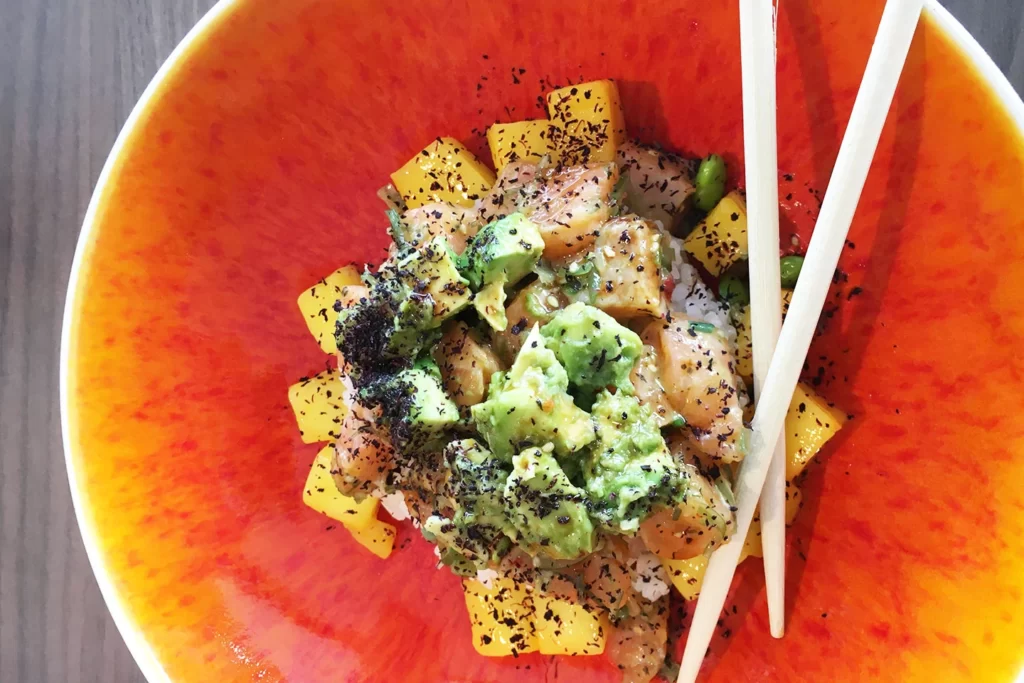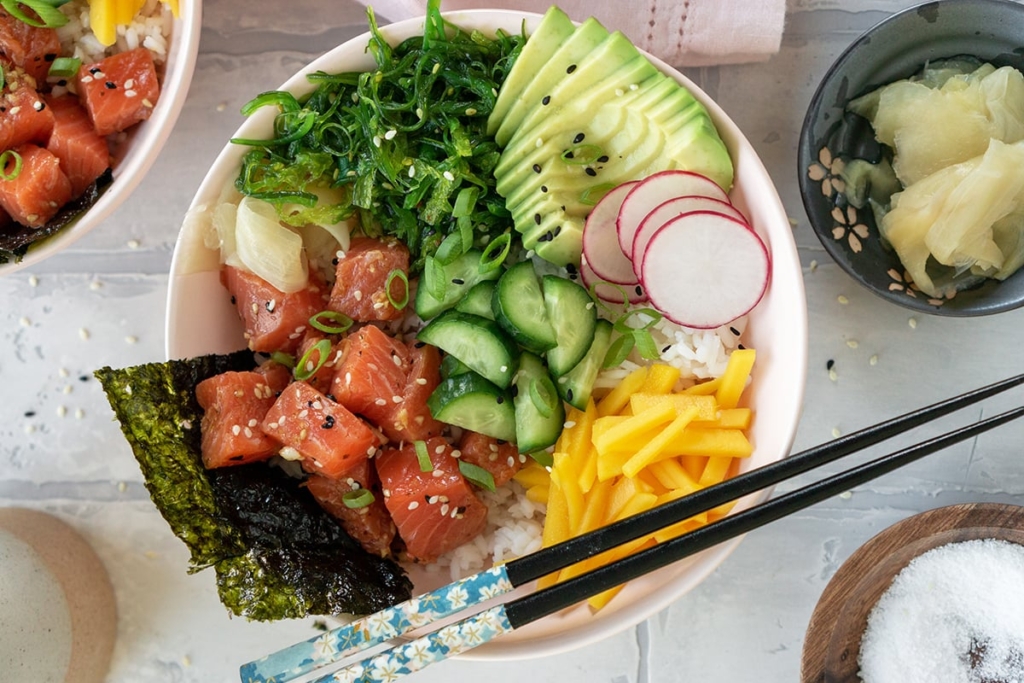
If you’re a food enthusiast, there’s a high chance that you’ve encountered the ever-popular and visually enticing poke bowl. Hailing from Hawaii, this delectable dish has taken the culinary world by storm, becoming a beloved staple in restaurants and homes across the globe. But amidst the savory flavors and vibrant ingredients, one question lingers in the minds of health-conscious individuals: What about the Poke Bowl Calories?
Table of Contents
The Rise of Poke Bowls

Poke bowls have emerged as a gastronomic trend, combining the essence of Hawaiian culture with contemporary culinary creativity. Traditionally, “poke” (pronounced poh-kay) means “to cut” or “to slice,” and the dish traditionally features raw fish marinated in soy sauce, sesame oil, and other flavorful ingredients. Nowadays, you can find a myriad of poke bowl variations, catering to diverse tastes and dietary preferences. From ahi tuna and salmon to tofu and chicken, these bowls offer something for everyone.
Poke Bowl Components

To better understand the calorie content of a poke bowl, let’s dissect its components:
- Base: The foundation of a poke bowl is typically rice (white or brown) or salad greens. Rice provides carbohydrates, while greens offer additional vitamins and minerals with fewer calories.
- Protein: The protein source in a poke bowl is the star of the show. Common options include raw fish like tuna or salmon, which are rich in omega-3 fatty acids. Other choices like cooked chicken, shrimp, or tofu are also available.
- Toppings: This is where poke bowls shine with creativity. Toppings may include avocado, seaweed, cucumber, edamame, mango, pickled ginger, and various sauces and dressings. These toppings contribute to the overall taste and nutritional value of the bowl.
- Extras: Some poke bowls come with extra add-ons like tempura flakes or crispy wonton strips for added crunch. While delicious, these extras can also increase calorie counts.
Poke Bowl Calories

The calorie content of a poke bowl can vary widely depending on the specific ingredients and portion sizes. On average, a regular-sized poke bowl with a base of rice or greens, a protein, a mix of toppings, and no extra add-ons typically ranges from 500 to 800 calories. Keep in mind that this is just an estimate, and the actual calorie count may differ based on the individual ingredients and preparation methods.
To make your poke bowl a lighter and healthier option, consider these tips:
- Choose Wisely: Opt for a base of greens instead of rice to cut down on calories and increase nutrient intake.
- Mindful Proteins: While raw fish is an excellent source of protein, consider lean cooked options like chicken or tofu for a lighter alternative.
- Vibrant Veggies: Load up on fresh, colorful vegetables as toppings. They provide vitamins, minerals, and fiber without adding excessive calories.
- Watch the Dressings: Some poke bowls come with high-calorie sauces. Ask for dressings on the side or opt for lighter options like soy sauce or ponzu.
- Portion Control: If you’re watching your calorie intake, consider ordering a small-sized poke bowl or sharing a regular-sized one with a friend.
Conclusion
Poke bowl offer a delightful and nutritious dining experience, but like any dish, their calorie content depends on the ingredients you choose and the portion size. By making mindful selections and customizing your bowl to suit your dietary needs, you can enjoy this Hawaiian delicacy guilt-free. So, go ahead and savor the flavors of the tropics while keeping your health goals in check!













